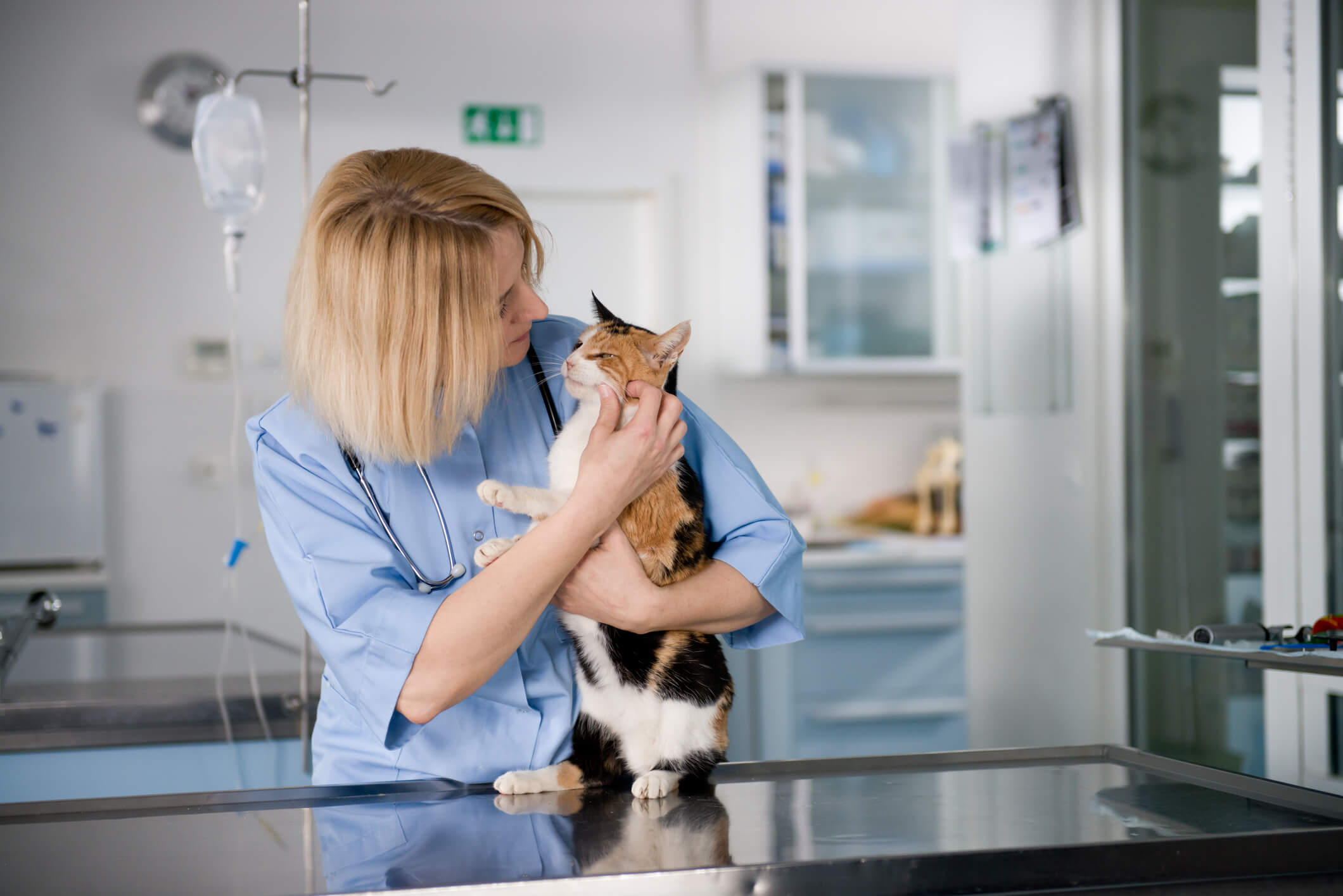
When Does a Cat's Troubled Breathing Become a Concern for Cancer?
Troubled breathing is a broad symptom that could mean many things. Most of the time, breathing problems point to conditions like asthma or allergies that are easily managed with treatment. Other times, kitties aren’t so lucky.
Although rare, something as simple as a cough could potentially indicate feline lung cancer. Here is some guidance on how to detect and treat lung cancer in cats.
Types of lung cancer in cats
Lung cancer in cats is also referred to as pulmonary cancer or lung adenocarcinoma. The disease causes most malignant tumors found in the lungs. There are two types of lung cancer: primary and metastatic. Primary lung tumors are very rare in cats and originate in their lung tissue. Metastatic tumors are the result of a primary tumor that has spread from another part of the body to the cat’s lungs.
Feline lung cancer is idiopathic, meaning vets can’t pinpoint the exact cause. However, cats that live around active smokers are drastically more at risk for developing malignant lung tumors. Cats in urban areas also have an increased risk because air pollution contains carcinogenic agents. Lung cancer is more common in cats 10 years or older, although the natural aging process doesn’t predispose all cats to cancer.
Symptoms of feline lung cancer
Surprisingly, breathing problems are uncommon in cats with lung cancer. Vets have found that less than a third of diagnosed cases have demonstrated coughing, wheezing or rapid breathing. A coughing kitty is still cause for concern, though, especially if the cough appears alongside other symptoms.
Here are some signs of feline lung cancer to watch out for:
- Labored or rapid breathing
- Coughing up blood
- Loss of appetite
- Lethargy and exercise intolerance
- Excessive vocalization
- Muscle weakness
- Hiding or aggression
This is by no means an exhaustive list. A cat’s symptoms depend on various factors like the size, location, nature and stage of the tumor. Metastatic lung tumors might produce no respiratory symptoms at all. Instead, the symptoms will be related to wherever the tumor first started growing. Pet parents should take note of all symptoms present and go to a vet for proper diagnosis.

Treatments for lung cancer in cats
There’s no one-size-fits-all treatment plan for cats with lung cancer. The course of action will heavily depend on the tumor’s shape and where it originated in the body. However, treating feline lung cancer usually involves surgically removing the tumor and following up with radiation and chemotherapy.
Surgery is recommended in cases where a cat’s tumor is localized in the lungs. Cancerous cells that form one large tumor are much easier to remove than a bunch of smaller, spread out ones. When the cat returns home from the hospital, they will need two weeks of rest in a quiet, confined room. Vets usually prescribe pain medication along with an Elizabethan collar to prevent the cat from scratching their surgical wounds.
Some tumors are too difficult to remove with surgery. In that case, the vet will recommend several rounds of radiation and chemotherapy. These treatments slow the spread of cancer cells to other parts of the body. Chemotherapy often takes place at a vet hospital, but pet parents can administer some forms of this medicine at home.
Over the course of treatment, the cat will have to visit the vet for recurring checkups. The purpose of these appointments is to make sure the surgery, radiation or chemotherapy is having the intended effect. Vets have to monitor how the cat responds to treatment and the rate at which cancer cells spread across the body.
Outlook for cats with lung cancer
Metastatic lung tumors indicate the final stages of cancer, resulting in a poor prognosis. At this point in the cancer’s development, the best thing a pet parent can do is mitigate their cat’s pain. The vet may prescribe pain medications, and parents should do everything they can to ensure their kitty’s comfort at home.
Cats with a primary lung tumor have a better shot at recovery. While any type of lung cancer is serious, vets can improve the prognosis by treating tumors as quickly as possible. Cats have a more positive outlook when the lung tumor is large enough to be surgically removed. If the cancer hasn’t spread yet, following up with radiation and chemotherapy can restore the cat’s quality of life.
Lung cancer is a scary diagnosis. It’s the last thing any pet parent wants to cross paths with. Catch lung cancer early on by keeping up with regular vet checkups. Talk to your vet about any concerning signs, even if they seem minor. Prompt action is your kitty’s best defense against lung cancer!


